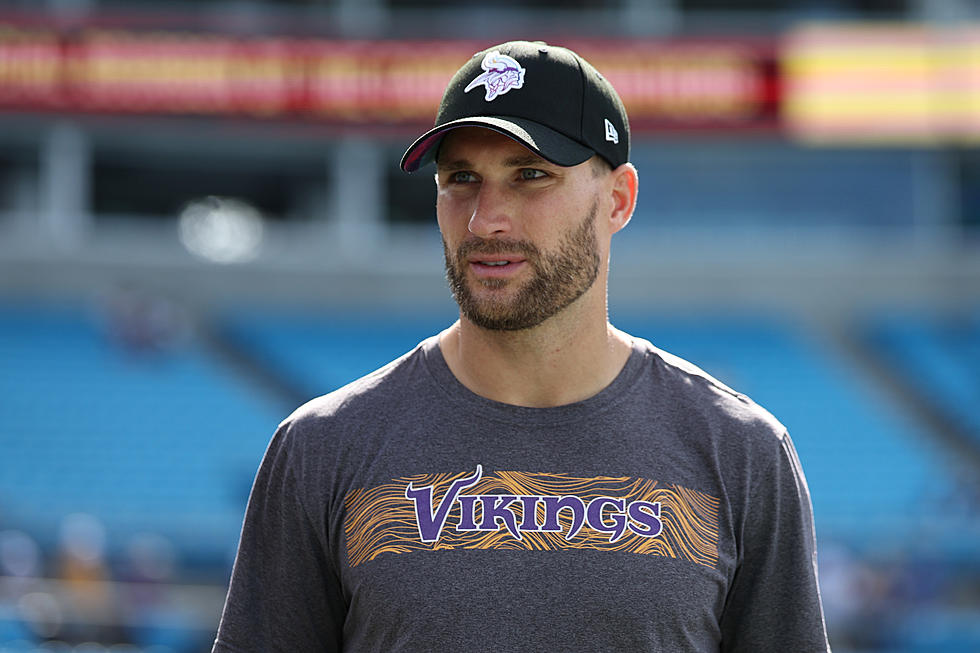
The New Contract Kirk Cousins Just Got Could Get Some People In Big Trouble
Former Minnesota Vikings quarterback Kirk Cousins made a splash at the opening of free agency this offseason, with word coming out on Monday that he had agreed to a new 4-year, $180 million contract with a new team.
The terms of his agreement with a new team to spur on a departure from his previous team home in the Twin Cities now has league officials investigating to see if the deal was done in such a fashion that goes against NFL rules.
Why is the league investigating?
The issue at hand for Kirk Cousins and the contract is that there is evidence to suggest Kirk and the Falcons violated the NFL's tampering rules, which prevent teams from talking to players who will be hitting free agency before a certain date.
The league is calling this a part of the "standard review process", which you might expect on any big free agency contract. But there is some compelling evidence that suggests it might go beyond just checking that all of the t's were crossed on the deal.
READ MORE: Kirk Cousins shows off new chains after signing new contract
This year's negotiation window, known as the "legal tampering period" opened on Monday morning, allowing players and teams to discuss potential deals before the official start of free agency, which happened on Wednesday.
What is the rule about tampering?
As the USA Today explains, teams are not permitted to talk to free agents until the opening of the free agency window. Prior to that, teams can speak with a player's agent during the "legal tampering period" when it opens. That occurs a couple of days before the official opening of the NFL free agency period.
The NFL's tampering rules say discussion directly between a player and any team that is not one he was last under contract with can't have direct communication until the free agency period opens. That includes coaches, training staff, and any other representation of any other team. That's what is in question with Kirk's situation.

This year's legal tampering period (when agents and teams could start talking) opened at 11 am Monday, and free agency (when players could talk directly with team representatives) opened at 3 pm Wednesday.
The reason for this rule, which was enacted in 2012, is to prevent teams and players from working under-the-table deals and to "create a level playing field in the competition for Unrestricted Free Agents by permitting clubs to negotiate with the certified agents of such players concerning all aspects of an NFL Player Contract" as the NFL's policy states.
What is the evidence against Kirk and the Falcons?
As Pro Football Talk highlights, Cousins admitted during his introductory press conference that he had been in contact with the Falcons prior to Wednesday afternoon, when free agency officially opened.
Kirk specifically admitted he had spoken with the Falcons head athletic trainer on Tuesday, which is a whole day prior to when he legally could have done so. After initially indicating that Kirk and the trainer had actually met in person, he rephrased to say that they had just spoken, just not in person.
Cousins was speaking about this conversation with the trainer because of a level of interest in his recovery and physical condition following his season-ending injury last season.
Either way, this type of communication is prohibited by league tampering rules.
Pro Football Talk indicates there may also be evidence that Kirk's agent may have had communication with the Falcons and may have provided medical information prior to the legal tampering period. Additionally, they say a player may have been attempting to recruit Cousins, which, if done under the wrong circumstances, could also be a violation.
What are the penalties for violating tampering rules?
While the NFL's policy is somewhat vague, it does indicate that involved parties could be fined or suspended and that the offending team could be penalized draft picks while the offended team could receive draft pick compensation.
Ultimately it comes down to the judgment of the league's investigation and the NFL Commisioner's judgment on punishment.
USA Today suggests possible punishment could reflect what happened in the Miami Dolphins/Tom Brady tampering case few years ago. In that incident, the Dolphins owner was suspended and fined $1.5 million, some other fines were levied against others involved, and the team lost a first and a third round draft picks in future drafts.
While the policy often seems to be "look the other way" as tampering is a pretty obvious part of free agency, the league will probably find it hard to ignore some of the evidence offered up by Cousins and the Falcons that might lead to some kind of punishment.
LOOK: 50 images of winning moments from sports history
Gallery Credit: Peter Richman
